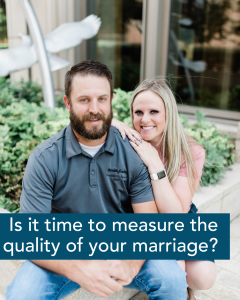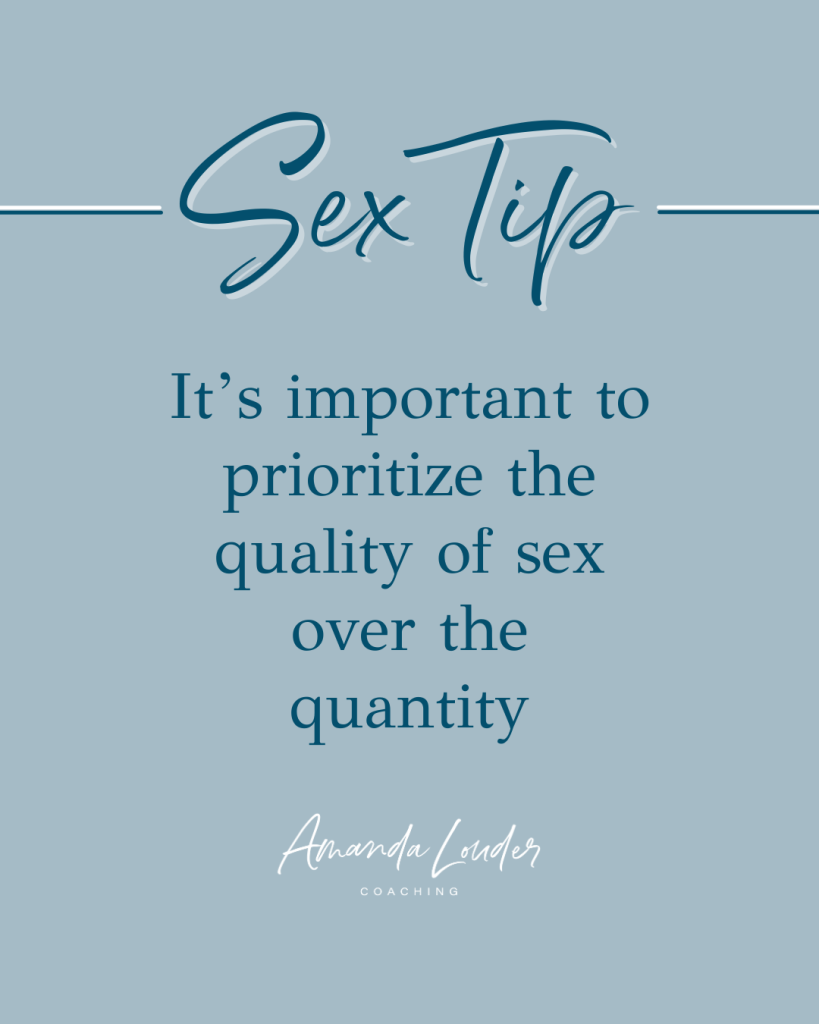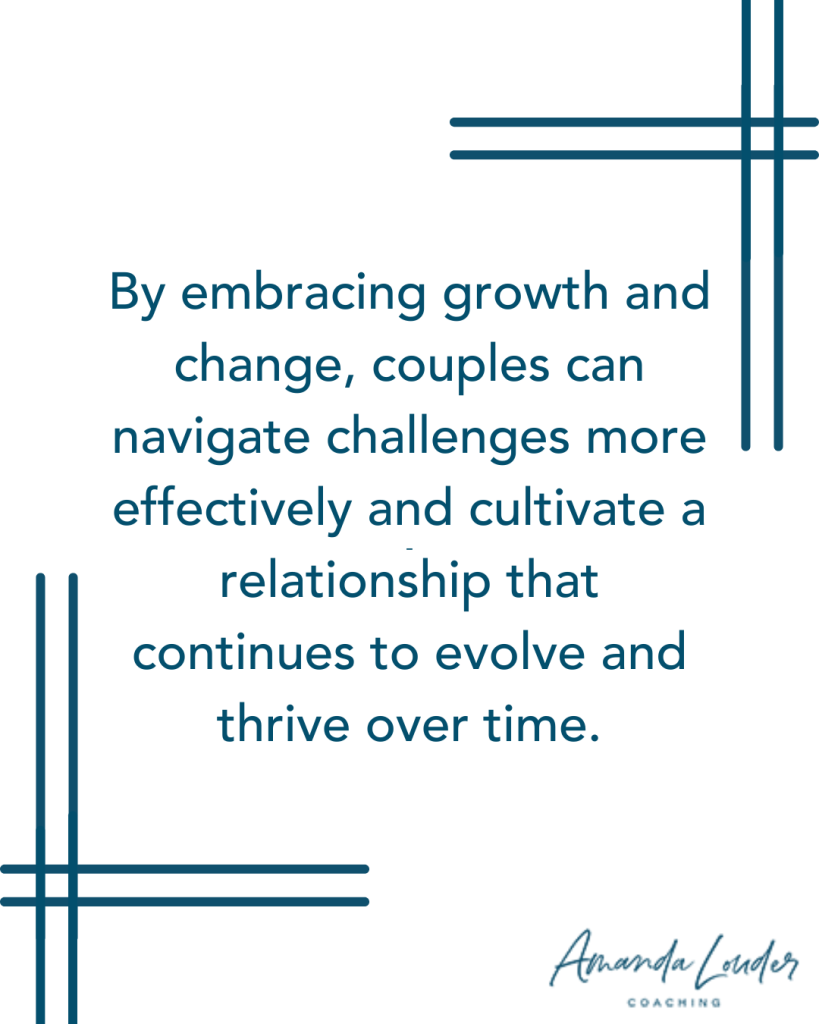
We often check in with our finances, our physical health, or our mental health, so why not our relationship health? In this episode, we will talk about why we should measure the quality of our marriages, how to measure both your relationship AND your sexual relationship. And what to do if we find things that we need to address. I would love for each of us to come through this with stronger marriages. Let’s get started!


Show Notes:
Follow Amanda on Facebook and Instagram.
Join Amanda’s Private Facebook Group.
Show Summary:
Hello, everyone! Welcome to another episode of Sex for Saints! Today we’ll be diving into an important topic: Measuring the quality of our marriage.
Should We Be Measuring the Quality of the Marriage?
Marriages, like any other aspect of life, benefit from periodic evaluation. I was recently listening to a podcast where it talked about evaluating our finances with a quarterly net worth analysis. The host actually suggested doing a check-in with yourself when you do this to evaluate personal happiness and mental health. We typically assess our physical health with regular check-ups with a doctor. And just with all other aspects of our life, I think it’s important to assess the health of our relationships. This doesn’t mean constantly scrutinizing every aspect of our marriage, but rather taking moments to reflect on how things are going.
One significant reason for measuring the quality of a marriage is to ensure that both partners are satisfied and fulfilled within the relationship. This involves considering factors such as emotional connection, communication, mutual support, shared goals, and yes, sexual connection and satisfaction. By periodically checking in on these aspects, couples can identify areas for improvement and work together to strengthen their bond.
However, it’s crucial to approach this measurement with a healthy mindset. Comparing our relationship to others or setting unrealistic expectations can lead to unnecessary stress and dissatisfaction. Instead, we should focus on what works best for us and our partner, acknowledging that every marriage is unique.
How Should We Measure It?
When measuring the quality of a marriage, there isn’t a one-size-fits-all approach. Instead, it’s essential to consider a variety of factors that contribute to a fulfilling relationship. Here are some key aspects to consider:
- Overall Satisfaction: Are both partners generally happy with the relationship? Do they feel valued, respected, and appreciated by each other?
- Communication and Conflict Resolution: How effectively do partners communicate with each other? Are they able to resolve conflicts in a healthy and constructive manner?
- Emotional Connection: Do partners feel emotionally connected to each other? Do they share their thoughts, feelings, and experiences openly and honestly?
- Shared Goals and Values: Do partners have common goals and values that they are working towards together? Are they supportive of each other’s aspirations and dreams?
By examining these aspects, couples can gain a better understanding of the strengths and weaknesses of their relationship and identify areas for growth.
If We Are Measuring by Our Sexual Relationship, What Does That Currently Look Like?
You’ll notice that sexual intimacy was not one of the four things we should measure our relationship by. While it is an important aspect of many marriages and can be a significant indicator of the quality of the relationship, it’s essential to look beyond just the frequency of sexual activity and consider the overall quality of the sexual relationship and how that contributes to the overall quality of the marriage.
Factors to consider when assessing the quality of the sexual relationship include:
- Mutual Satisfaction: Are both partners satisfied with their sex life? Do they feel fulfilled and connected through sexual intimacy?
- Communication: Are partners able to communicate openly and honestly about their sexual desires, preferences, and boundaries?
- Variety and Exploration: Are partners willing to explore new experiences and techniques together? Do they prioritize mutual pleasure and satisfaction?
- Emotional Connection: Does sexual intimacy deepen the emotional bond between partners? Do they feel closer and more connected as a result of their sexual experiences?
By focusing on these aspects, couples can cultivate a fulfilling and satisfying sexual relationship that enhances their overall connection and intimacy, which enhances the overall relationship.
We Should Be Measuring by Connection and Intimacy, Not Frequency
While it’s natural to consider the frequency of sexual encounters when assessing the quality of a marriage and sexual relationship, it’s important not to prioritize quantity over quality. Instead, couples should focus on cultivating connection and intimacy in their relationship, both inside and outside the bedroom.
Connection and intimacy involve more than just physical closeness; they encompass emotional closeness, trust, vulnerability, and mutual understanding. Couples can strengthen their connection and intimacy by:
- Spending quality time together, engaging in activities that both partners enjoy and that foster emotional connection.
- Communicating openly and honestly with each other, sharing thoughts, feelings, and experiences without fear of judgment or rejection.
- Showing affection and appreciation for each other through physical touch, hugs, kisses, and cuddling.
- Creating shared experiences and memories together, such as traveling, trying new things, or pursuing common interests.
By prioritizing connection and intimacy, couples can build a strong foundation for their relationship that will withstand the challenges and trials of life.
Growing and Changing in Our Marriages
It’s natural for couples to encounter obstacles and challenges in their marriage, and sometimes, the strategies we’ve used in the past may no longer be effective. When faced with adversity, it’s essential to be open to growth and change, rather than stubbornly clinging to old ways of thinking and behaving.
This might involve:
- Taking time to reflect on our own thoughts, feelings, and behaviors, and considering how they impact our relationship.
- Being willing to seek outside help and support
- Being open to discussing and finding creative solutions to problems, rather than insisting on having things our own way or always giving in to what our partner wants.
- Recognizing that personal and relational growth is an ongoing process, and being open to learning new skills and perspectives.
By embracing growth and change, couples can navigate challenges more effectively and cultivate a relationship that continues to evolve and thrive over time.
Michelle Obama said, “As a kid, you learn to measure long before you understand the size or value of anything. Eventually, if you’re lucky, you learn that you’ve been measuring all wrong.” This quote reminds us that our perspectives on what matters in life can evolve over time. In the context of marriage, this quote underscores the importance of reevaluating our priorities and perspectives as we grow and learn more about ourselves and our partners. What we once thought was important may no longer hold the same significance as we gain new insights and experiences.
Ultimately, measuring the quality of a marriage is not about adhering to rigid standards or benchmarks; it’s about cultivating love, connection, and intimacy in a way that feels authentic and fulfilling for both partners. By focusing on these core principles and being open to growth and change, couples can build a strong and resilient relationship that stands the test of time.
If you and your spouse evaluate things and realize you need some help, I still have some spots open for couples coaching as well as the couples retreat in September. You can go to my website, AmandaLouder.com to learn more about both.
Remember, love is a journey, not a destination. Stay committed, stay passionate, and stay connected. Goodbye for now.



